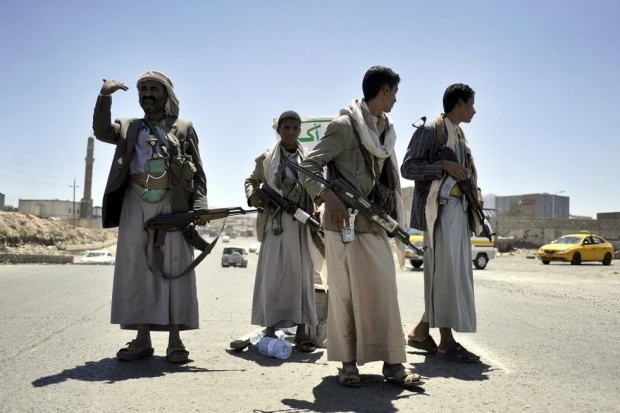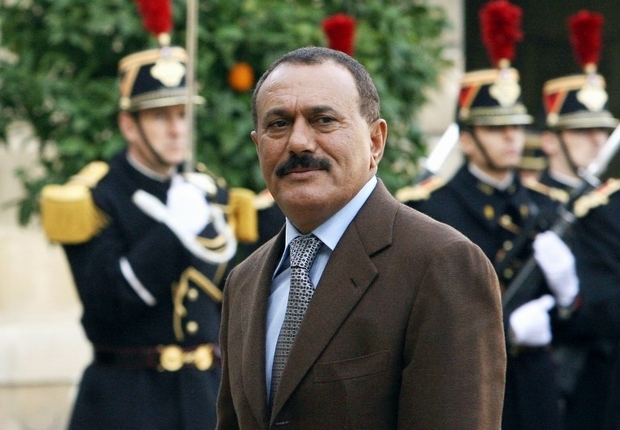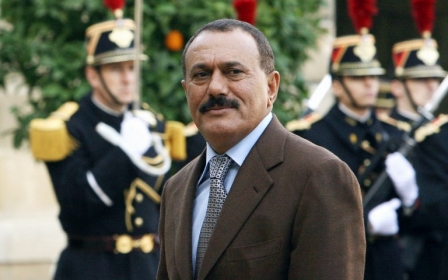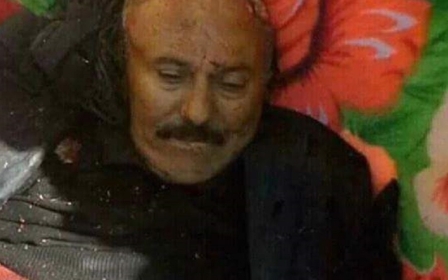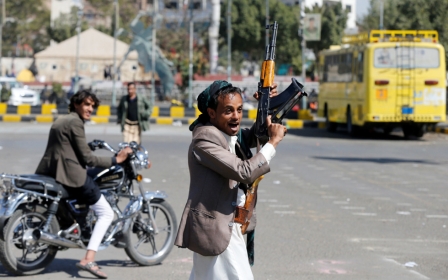Yemen's Hadi orders advance on Sanaa after predecessor killed
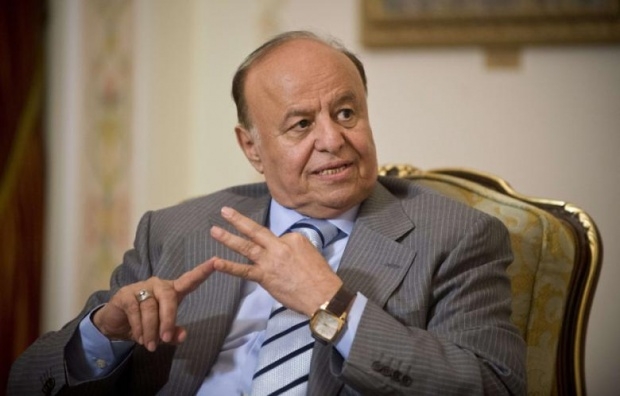
Yemen's exiled president ordered troops to advance on Sanaa hours after his predecessor was killed by Houthi rebels, officials said, as heavy fighting continued in the capital.
President Abd Rabbuh Mansour Hadi called on Yemenis to unite against the Houthi rebels who shot Ali Abdullah Saleh dead as he fled the city following the collapse of their alliance.
"Let's join hands to end the control of these... criminal gangs and... open a new chapter to rid our beloved Yemen of this nightmare," Hadi, leader of the internationally recognised government, said in a televised address late Monday from Saudi Arabia, where he lives in exile.
Saudi-led warplanes meanwhile pounded the rebel-held Yemeni capital before dawn on Tuesday, residents said.
At least seven strikes hit the presidential palace in a densely populated residential neighbourhood in the heart of Sanaa, witnesses said.
There were a few minor clashes between the Houthi and Saleh supporters in southern districts which had been loyal to the strongman.
But there was no repetition of the heavy fighting that had rocked the capital for the five previous nights, residents said.
Saleh, who ruled Yemen for three decades, had joined forces with the Shia Houthi rebels in 2014 when they took control of large parts of the country, including the capital, Sanaa.
But that alliance unravelled over the past week, with dozens reported dead in heavy clashes as the former leader reached out to the Saudi-led coalition that has waged devastating air strikes against the Houthis since March 2015.
Yemen's war has left thousands dead, led to one of the world's worst humanitarian crises and deepened tensions between Middle East rivals Saudi Arabia and Iran.
Hadi has ordered Vice President Ali Mohsen al-Ahmar to "activate military units and advance towards the capital," a presidency official speaking on condition of anonymity told AFP.
Military and government sources said the army would advance on Sanaa from the east and northeast, with at least seven battalions ordered to move forward.
Saleh's son calls for revenge
Shortly afterwards, Saleh's son, Ahmed Ali Abdallah Saleh, called for revenge against the Iran-aligned group on Tuesday, Saudi-owned al-Ekbariya TV quoted him as saying.
“I will lead the battle until the last Houthi is thrown out of Yemen ... the blood of my father will be hell ringing in the ears of Iran,” Ahmed Ali Saleh was quoted as saying.
It was not immediately possible to verify the authenticity of the report.
He called for his father’s backers to “take back Yemen from the Iranian Houthi militias”.
Ahmed Ali has lived under house arrest in the United Arab Emirates, where he once served as ambassador before it joined ally Saudi Arabia to make war on the Houthis, who until this week had ruled much of Yemen together with Saleh.
Political sources say he had been held incommunicado and under guard at a villa in the UAE capital, Abu Dhabi. His reported first public statement may indicate that his former enemies in the coalition are unleashing him against the Houthis.
Ahmed Ali, the powerful former military commander of Yemen’s elite Republican Guards, appeared to have been groomed to succeed his father, and he may be the family’s last chance to win back influence.
Fears for civilians
Saleh was forced to step down in 2012, after his forces waged a bloody crackdown on peaceful Arab Spring-inspired protests calling for his overthrow.
The 75-year-old had survived civil war, rebellion in the north, an Al-Qaeda insurgency in the south and a June 2011 bomb attack on his palace that wounded him badly.
The Houthis announced Saleh's death on the rebels' Al-Masirah television station, declaring in a statement the "end of the crisis of militias" - referring to Saleh's armed supporters, to whom the government have offered an amnesty.
There were reports of further clashes and coalition strikes against Houthi-controlled government buildings and around Sanaa airport on Monday evening.
The Saudi-led coalition warned the city's residents to evacuate rebel-controlled areas, as international aid groups warned on Monday they were losing the ability to reach civilians in Sanaa.
A video provided to AFP by the rebels showed what appeared to be a dead Saleh with a severe head injury, his body wrapped in a floral-print blanket.
A military source said the Houthis had stopped their four-car convoy about 40 kilometres south of Sanaa and shot dead Saleh and two other officials.
Faiqa al-Sayyid, a leader in Saleh's General People's Congress (GPC) party, said Saleh "was martyred in the defence of the republic".
Fraught alliance
The Saleh-Houthi alliance had been fraught since its inception in 2014, when the two ended decades of enmity and joined ranks to capture Sanaa from Hadi's government.
Saudi Arabia, accusing Iran of backing the rebels, intervened in Yemen on behalf of the government the following year. The ensuing conflict has claimed more than 10,000 lives.
Saleh on Saturday announced he was open to talks with Saudi Arabia and its allies on condition they ended their crippling blockade of Yemen's ports and airports - dealing a serious blow to his already fragile alliance with rebel chief Abdul Malik al-Houthi.
In a televised speech on Monday, the Houthi leader made no mention of Saleh's death but expressed his satisfaction at the day's events.
"Today marked the failure of the conspiracy and treason, a black day for the forces of aggression," he said on Al-Masirah.
New MEE newsletter: Jerusalem Dispatch
Sign up to get the latest insights and analysis on Israel-Palestine, alongside Turkey Unpacked and other MEE newsletters
Middle East Eye delivers independent and unrivalled coverage and analysis of the Middle East, North Africa and beyond. To learn more about republishing this content and the associated fees, please fill out this form. More about MEE can be found here.


